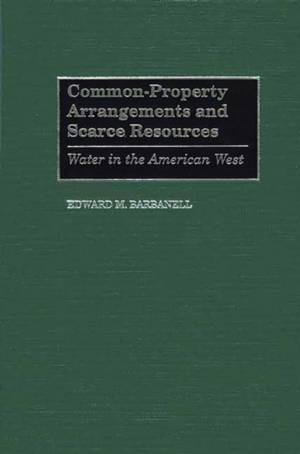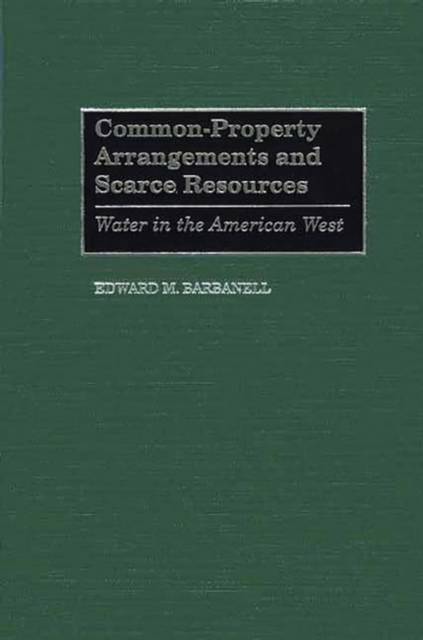
- Retrait gratuit dans votre magasin Club
- 7.000.000 titres dans notre catalogue
- Payer en toute sécurité
- Toujours un magasin près de chez vous
- Retrait gratuit dans votre magasin Club
- 7.000.0000 titres dans notre catalogue
- Payer en toute sécurité
- Toujours un magasin près de chez vous
Common-Property Arrangements and Scarce Resources
Water in the American West
Edward BarbanellDescription
It is widely held that private ownership is the preferred end state for all scarce resources. Those who hold this view have not looked closely enough at water in the American West, Barbanell contends. Because of water's special attributes, private ownership is an ineffective means for protecting individuals interests. Splitting the various rights of ownership between individual resources users and the community to which they belong can better protect those interests. Barbanell develops a conception of this form of common ownership, a common-property arrangement, and shows that it can function effectively for water in the West. More generally, he offers an expanded framework for analyzing right relationships and examining problems related to resource scarcity.
Some economists argue that John Locke's account of property justifies the private ownership of water in the West. Barbanell argues, however, that because Locke did not think carefully enough about the variable nature of resources, his account does not support that conclusion. Although economists recognize that private ownership may not be perfectly suited to all resources, they are nonetheless skeptical about common ownership alternatives. Barbanell shows that this skepticism is unwarranted. When the rights relationship among members of a resource community is based on mutual expectations of reciprocal behavior, then a common-property arrangement can function effectively to control the degradation and depletion of a scarce resource. Barbanell's argument that common ownership is a conceptually sound and politically viable alternative for water will be of particular interest to public policy makers, environmentalists, resource economists, and political philosophers.Spécifications
Parties prenantes
- Auteur(s) :
- Editeur:
Contenu
- Nombre de pages :
- 192
- Langue:
- Anglais
Caractéristiques
- EAN:
- 9780275971731
- Date de parution :
- 30-09-01
- Format:
- Livre relié
- Format numérique:
- Genaaid
- Dimensions :
- 154 mm x 241 mm
- Poids :
- 412 g

Les avis
Nous publions uniquement les avis qui respectent les conditions requises. Consultez nos conditions pour les avis.






